SUMMARY
This is AI generated summarization, which may have errors. For context, always refer to the full article.
![[OPINION] Challenging presidential bets to build a healthy future for Filipino masses](https://www.rappler.com/tachyon/2022/03/ispeak-ph-healthcare.jpg)
Interviews and debates featuring presidential, vice presidential, and senatorial aspirants started since late last year. As a health activist, I look forward to what the candidates have to offer as far as health is concerned.
Most, if not all, have been promising the provision of better health care. In particular, affordable and quality medical services, hospitals, and medicines; evidence-based pandemic responses led by field experts; a coordinated health system with a higher budget; and increased salaries and benefits for our healthcare workers without the specifics.
All these are noble and necessary, however, there is more to our health than just getting cured. This is the time when the demand, “health for all,” will simply not cut it. The health of the masses should neither be compromised nor traded off for economic gains alone. Today, the “health in all policies” approach becomes even more critical in saving not only the masses, but also the planet.
On World Health Day and World Health Worker Week, our electoral candidates are gearing up to lead the country beyond 2022. And if the aim is to envision the Philippines becoming “the healthiest people in Asia by 2040,” then key questions need to be asked. Should the next president maintain the status quo in terms of energy choices, climate emergency responses, food production methods, water sources and sanitation? Can we build a better health workforce by providing them with a dignified life – better salaries, benefits, professional growth, and non-abusive working conditions?
Except for the Ka Leody De Guzman-Walden Bello slate, I have yet to hear any other presidential candidate taking a pro-health stance on non-medical but health-related issues, policies, and choices.
Over the years, our health system mainly focused on disease management. As a result, our primary care physicians and health promoters got outnumbered by specialists. Most of their interventions are medical. For example, our social health insurance, PhilHealth, finances disease-based packages instead of comprehensive essential health services (i.e., reproductive health, oral health, mental health, etc.) with very few outpatient services meant to prevent and control diseases.
Moreover, while most candidates have promised to provide affordable health care commodities and services, almost all of them have made no mention about their regulatory agenda in health. The effective enforcement of regulations will make quality medicines, equipment, technology, hospital, and healthcare services available, accessible, and affordable; this would tremendously reduce the patient’s out-of-pocket expenditures (currently at above 50%).
However, most of these concerns are systematically governed by neoliberal policies. We may have wins in the Generic and Cheaper Medicines Acts, but they are not being fully implemented as evidenced by the continuing specialist-prescribed, branded, and high-priced medicines. Price controls on medicines, services, and laboratories have yet to be established. But how can we do this when the voices of pharmaceutical corporations, hospital associations, and professional organizations are dominating the health sector; while the voices of patients and the Filipino masses are drowned out, and their perspectives invalidated. Similarly, the latter’s participation is simply token for the government. Furthermore, industry interference (i.e., tobacco, alcohol, food, milk, etc.) in governance remains very high.
The health system was one of the first to be impacted by the structural adjustment programs of the multilateral banks, one of the vehicles of neoliberalism in the late 1980s. The social services spending of government, including health care, was, effectively reduced over other economic concerns. Devolution, as a prescription, was pursued at a time when the local governments were unprepared to take on the gargantuan health tasks. Consequently, this compelled the health system to work in silos, and in isolation from other government agencies. Privatization, corporatization, and labor flexibilization also hit our hospitals and healthcare workers, resulting in many of the latter becoming overseas Filipino workers (OFWs).
In addition, when the country became a member economy of the World Trade Organization (WTO), the health system got subjected to different trade agreements, particularly the Trade-Related Aspects of Intellectual Property Rights (TRIPS). Such agreements have restricted generic medicines from being manufactured by local pharmaceutical companies due to patent regulations, specifically those enshrined in bilateral free trade agreements.
Neoliberalism is so ingrained in our health system that it prevents us from addressing health holistically. It creates an environment wherein profits, economic gains, and individualism are prioritized, while health care for the majority is compromised. This is especially felt in geographically isolated and disadvantaged (GIDA) areas, where most indigenous communities reside. Indeed, many of our healthcare workers do not want to be assigned to these areas due to the lack of incentives from the government, and reinforced by a medical education that is not oriented toward public service.
Vertical programs on infectious diseases get more donor funds, while non-communicable diseases, and those diseases brought about by urbanization and globalization, remain dismal in support funds. This imbalance in priorities has been ongoing for decades. And the state of neglect was sharply emphasized when the COVID-19 pandemic struck; this only brought the continuity of care among those patients with chronic conditions to a halt.
At this point, only the Ka Leody-Walden electoral tandem clearly has a platform which vows to dismantle neoliberal policies in all areas of concern. All the rest merely speak of continuing and enhancing the doables, while outrightly saying no to some health-related gender issues, such as decriminalizing abortion. Though most promise to increase funds and implement Universal Health Care (UHC), their inactions toward neoliberalism in health care proves that the status quo in health will continue. Thus, whatever gains we now have will not be felt at all.
Furthermore, with the current health system configuration, it would be next to impossible to build a healthy future for the Filipino masses. This can only worsen if the candidates continue to insist on the use of dirty “fossil fuels,” or even nuclear energy; on maintaining the import-dependent, export-oriented type of economy; on destructive agriculture and the conversion of lands for real estate interests; on extractive industries to earn government revenues; on pollution-causing, car-centric modes of transportation; on false solutions to the climate crisis; on privatized water and sanitation services; and on the undignified working conditions and precarious employment of many, including our healthcare workers.
Hence, beyond hospitals and medicines, the electoral candidates’ platforms and articulation still need to be greatly fleshed out. They will need to lay down their plans for ensuring that indeed “no one is left behind.” With all due respect to my health policy professors, and as someone who has listened to the voices of the masses for nearly half of my life, I believe that only a health system bereft of the neoliberal agenda can lead us to reach the unreached, while saving our planet. For this is radical love, and it is non-negotiable.
“Kahit sino ka man, saan ka man, kailan pa man, may dekalidad na serbisyong pangkalusugan para sa lahat tungo sa buhay na may dignidad.”
– Mercedes Fabros
Only the candidate(s) who can attain this reality deserve(s) my vote. – Rappler.com
Jofti Villena is a health activist and a health policy student.
Add a comment
How does this make you feel?
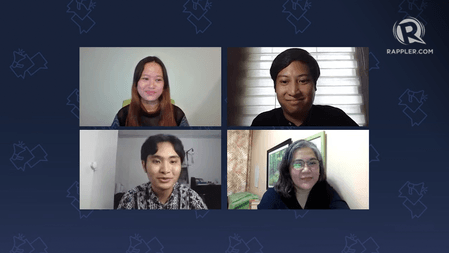
![[New School] On the lack of healthcare professionals in the Philippines](https://www.rappler.com/tachyon/2021/04/ns_healthcare-1280.jpg?fit=449%2C449)
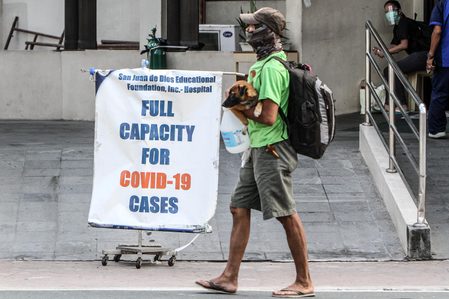
![[WATCH] In The Public Square with John Nery: Preloaded elections?](https://www.rappler.com/tachyon/2023/04/In-the-Public-Square-LS-SQ.jpg?resize=257%2C257&crop=414px%2C0px%2C1080px%2C1080px)
![[Newspoint] 19 million reasons](https://www.rappler.com/tachyon/2022/12/Newspoint-19-million-reasons-December-31-2022.jpg?resize=257%2C257&crop=181px%2C0px%2C900px%2C900px)

![[OPINION] The long revolution: Voices from the ground](https://www.rappler.com/tachyon/2022/06/Long-revolution-June-30-2022.jpg?resize=257%2C257&crop=239px%2C0px%2C720px%2C720px)
![[OPINION] I was called a ‘terrorist supporter’ while observing the Philippine elections](https://www.rappler.com/tachyon/2022/06/RT-poster-blurred.jpeg?resize=257%2C257&crop_strategy=attention)
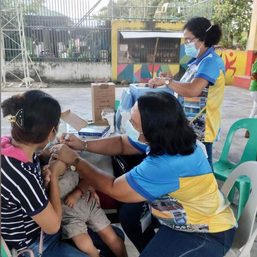
![[Free to Disagree] Sabwatan ng mga doktor at drug companies](https://www.rappler.com/tachyon/2024/04/tl-sabwatan-doktor-drug-companies-April-22-2024.jpg?resize=257%2C257&crop=292px%2C0px%2C720px%2C720px)
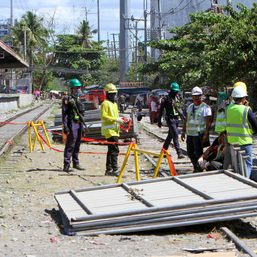

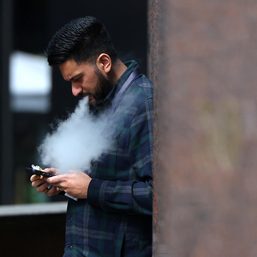
There are no comments yet. Add your comment to start the conversation.